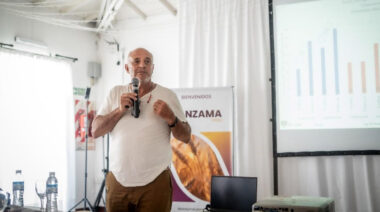This ambitious effort, spearheaded by the economy ministry under the guidance of ex-Wall Street aficionado Luis Caputo, targets alleviating fiscal stress and smoothing the path for President Javier Milei’s plan to dismantle longstanding currency controls within the year.
Caputo’s mission to erase Argentina’s fiscal deficit and wean the government off its dependency on printing money is clear. Analysts view the debt restructuring as a pivotal step towards taming the nation’s rampant inflation and easing exchange rate tensions that currently hinder the removal of currency restrictions imposed by prior administrations. These controls have been a significant bottleneck for investment, pegging the peso at around 830 to the US dollar, distorting economic dynamics.
The swap, converting titles due this year for those maturing between 2025 and 2028, signals a strategic pivot. “This will give the government a lot more room to breathe on financial matters,” noted Salvador Vitelli of Romano Group consultancy.
Additionally, in a move to mitigate central bank liabilities in real terms, Caputo’s ally and central bank chief Santiago Bausili announced a cut in the benchmark interest rate from 100% to 80%.
Despite battling an inflationary high of 276.2% as of February, Argentina shows signs of a slowing monthly rate, surpassing economists’ expectations.
The Milei administration has significantly contracted the monetary base since taking office, pausing the press on money creation and hinting at a broader strategy to stabilize the economy amidst a predicted 2.8% contraction.
With over 70% of the debt eligible for the swap held by public entities and a “relatively good” private sector participation without the usual buyback guarantees, Argentina is ramping up efforts to drain excess liquidity. This approach aligns with the anticipated demand for dollars post-currency control removal, yet hinges on bolstering foreign exchange reserves or securing an IMF loan to stabilize peso expectations.
This pivotal week in Argentine finance not only underscores a concerted push towards economic normalization but also spotlights the nuanced challenges of navigating a transition away from restrictive monetary policies.
For VCs and founders watching the global economic landscape, Argentina’s latest moves offer a case study in the complexities of financial reform and the potential for market revitalization.







